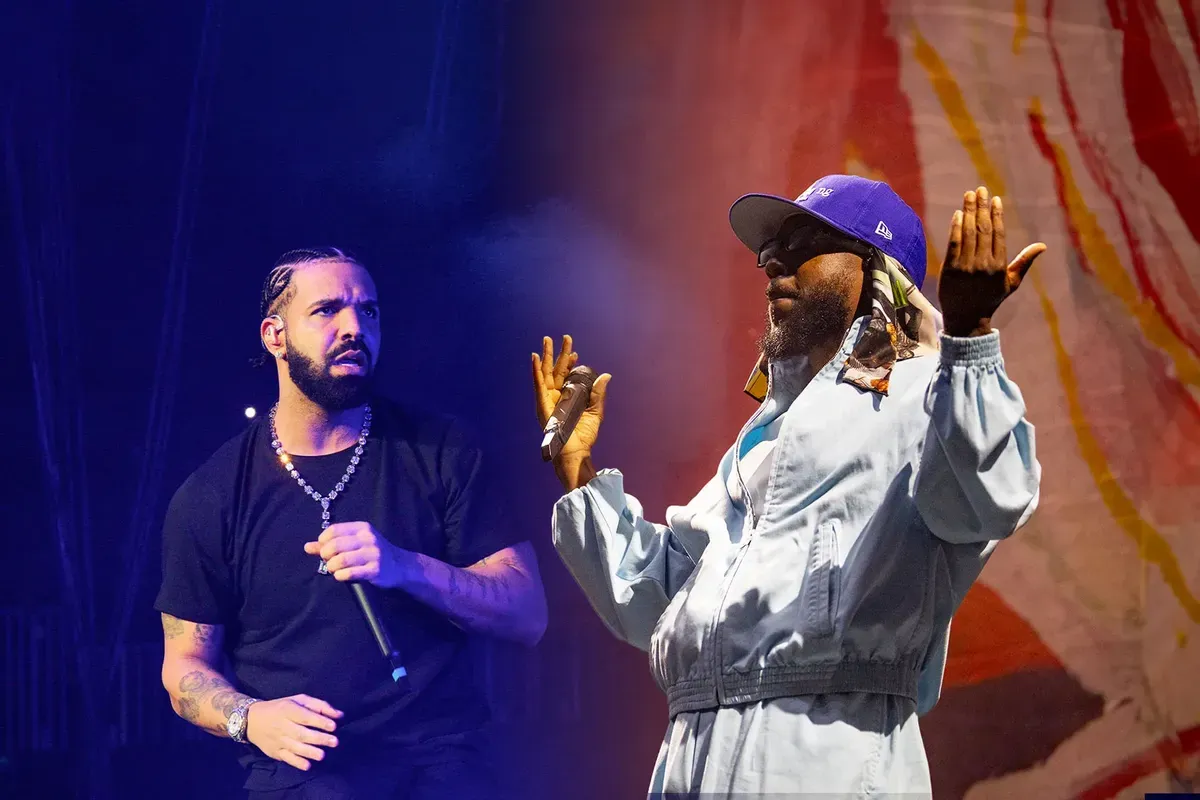The Drake vs. Kendrick Lamar Feud: A Decade of Rivalry and Rap Dominance
Dive into the decade-long feud between Drake and Kendrick Lamar, two of hip-hop's biggest stars. From diss tracks to personal attacks, we explore the rivalry that has redefined the genre.

n the world of hip-hop, few rivalries have captivated fans and dominated headlines like the long-standing feud between Drake and Kendrick Lamar. Over the course of more than a decade, these two rap giants have engaged in a lyrical battle that has redefined the genre and pushed both artists to new heights of creativity and commercial success.
The origins of their conflict can be traced back to 2013 when Lamar's verse on Big Sean's "Control" sent shockwaves through the rap community. In the song, Lamar called out several prominent rappers, including Drake, declaring his intention to "murder" them in a competitive sense While some saw this as a bold challenge to his peers, Drake responded by downplaying the significance of Lamar's verse in interviews.
However, a competitive rivalry soon became more personal and intense. Over the years, both Drake and Lamar have used their music to take shots at each other, with songs like Drake's "The Language" and Lamar's "King Kunta" being interpreted as veiled disses.
The feud reached new heights in 2023 when J. Cole referred to himself, Drake, and Lamar as the "big three" of rap in his song "First Person Shooter." Lamar promptly dismissed this notion in his verse on "Like That," asserting his dominance by saying, "Motherf*** the big three, it's just big me"
But it was in 2024 that the conflict truly exploded, with a series of diss tracks that showcased both artists at their most raw and unfiltered. Drake's "Push Ups" and "Taylor Made Freestyle" aimed at Lamar's height and collaborations with pop artists, even using AI-generated voices of Tupac and Snoop Dogg. Lamar responded with the scathing "Euphoria," which criticized Drake's parenting skills and accused him of selling out.
The gloves were off, and the attacks grew more personal. Lamar's "Not Like Us" made serious allegations about Drake's conduct with minors, while Drake's "The Heart Part 6" fired back with counter-accusations about Lamar's own life. The feud spilt beyond the music, with other rappers taking sides and tensions reportedly leading to a shooting incident outside Drake's mansion.
Yet amidst all the drama and controversy, the Drake vs Kendrick Lamar feud has made it so compelling because it has pushed both artists to new creative heights. Their diss tracks are not just empty insults but masterful displays of lyricism and storytelling that showcase their unique talents and personalities.
At its core, the feud is a battle between two contrasting visions of hip-hop excellence. Drake represents the pinnacle of commercial success, with a penchant for catchy hooks and viral moments that have made him a global superstar. Lamar, on the other hand, embodies the tradition of the socially conscious MC, using his platform to tackle weighty issues and challenge the status quo.
In many ways, their rivalry mirrors the classic dichotomy between Michael Jackson and Prince - two musical icons whose contrasting styles and personalities captured the public imagination and defined an era. Like Jackson and Prince, Drake and Lamar are undeniable talents whose impact extends beyond the music world.
As we approach the middle of 2024, the Drake vs. Kendrick Lamar feud shows no signs of slowing down. Both artists continue to release new music and take shots at each other, keeping fans and critics alike on the edge of their seats. While some may lament the negativity and personal attacks, there's no denying that this rivalry has produced some of the most exciting and talked-about moments in recent hip-hop history.
Ultimately, the Drake vs. Kendrick Lamar feud is a testament to the enduring power of hip-hop as a cultural force. It's a reminder that, at its best, this genre is about more than just music - it's about storytelling, identity, and the quest for authenticity in a world that often feels artificial and superficial. As long as artists like Drake and Kendrick Lamar push each other to be better, hip-hop will continue to thrive and evolve in ways we can only imagine.




